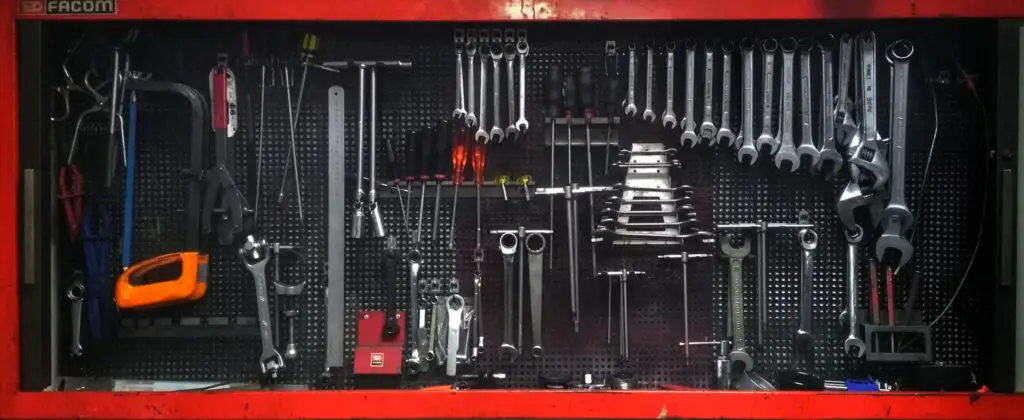Introduction
Vehicles, equipment, and light trucks must all be inspected and repaired by a mechanic. They go by the name of service technicians as well. These experts supervise maintenance inspections, keep track of inventory, put together mechanical parts, and make repairs. They frequently perform their duties in indoor garages. Let us see some basic mechanical skills.

You can learn more about the basic mechanical skills that enable professionals to advance in the field in the sections that follow.
What Are Basic Mechanical Skills?
Although they are not required to hold a postsecondary degree, many mechanics enroll in non-degree programs at a technical college. To succeed, auto mechanics must acquire the necessary skills. The following are the basic mechanical skills that every successful mechanic needs to have:
- Problem-solving skills
- Attention to detail
- Interpersonal skills
- Strong work ethic
- Time management skills
- Communication skills
- Organizational skills
- Efficiency
- Adaptability
- Professionalism
Problem-solving skills
The majority of people who bring their cars to a mechanic don’t know what the issue is. Any mechanic’s main duty is to identify the cause of a machine’s malfunction and make the necessary repairs. Sometimes the solution is straightforward, but other times it will call for some problem-solving abilities. Based on the limited information provided by the customer, you must identify potential problems. Mechanics can identify which parts require repair, which parts require replacement, and which parts can be ignored by using problem-solving techniques.
Attention to detail
You must pay close attention to detail when carrying out these tasks, whether you’re working on repairs, diagnostics, or maintenance. Without paying close attention to detail, mechanics might send customers back on the road with a car that wasn’t fully fixed, potentially endangering their lives. The ability to fix a car correctly the first time will also enable you to avoid customers having to bring their cars back. Customer satisfaction will most likely increase as a result, encouraging repeat business.
Interpersonal skills
Drivers are more inclined to leave their car in the hands of someone they trust. A great way to establish trust and understanding is to be able to communicate problems and what you’ll be working on.
Strong work ethic
Customers rely on their mechanics completely because it’s difficult to get by without a car in the modern world. To get the best results, a person with a good work ethic must put in a lot of effort, be on time, pay attention, and be willing to handle all aspects of the job.
Time management skills
In addition to dealing with multiple customers in a single day, mechanics also frequently need to complete longer repairs that may require several days. You can manage and meet conflicting deadlines if you have good time management skills.
Since customers want a precise estimated return date for their vehicle, time management also aids mechanics in estimating how long each repair will take.
Communication skills
One of an auto mechanic’s most important skill sets is effective communication. People who may not know much about cars must be given a clear explanation of vehicle issues required maintenance procedures and repair options by these professionals. Customers want to know what was done to their car and why they are being charged what they are. A mechanic must possess strong written and verbal communication skills for this.
Organizational skills
It’s critical to have a well-organized workspace if you want to complete tasks quickly. You can then easily locate the necessary components and tools thanks to this. Maintaining order in your workspace benefits both you and your coworkers, who can work more effectively as a result.
Efficiency
While paying attention to details is important, mechanics must also effectively manage their time. Efficiency is a key trait to possess because it demonstrates your ability to finish repairs in a reasonable amount of time. Employers benefit because more repairs can be completed throughout the day, boosting the repair shop’s productivity.
Adaptability
Since technology and equipment are always evolving, mechanics must keep up with the most recent developments. Employers might want to know that in addition to fixing machines, appliances, and vehicles, you have the flexibility to update your skills and respond to changes in the industry.
Professionalism
Great technicians understand the value of being professional in addition to having people skills. Put your best foot forward because you’ll be the dealership or repair shop’s face in the eyes of your customers.
Conclusion
A good mechanic can be distinguished from a great one by having comprehensive knowledge of the automotive industry in addition to soft skills like communication, adaptability, efficiency, time management, and problem-solving abilities. Technical expertise and manual dexterity are just two of the many skills that automotive mechanics frequently need.
Frequently Asked Questions
- Can I work as an auto mechanic if I have no automotive experience?
Answer: By completing a training program, people without any automotive experience can become auto mechanics. A non-degree program at a technical school is available for aspiring mechanics and typically lasts 6 to 12 months.
- Do auto mechanics need to have math skills?
Answer: To choose the best tools for the job, mechanics frequently use fractions in their work, so the answer is yes, they do need to have a basic understanding of math.